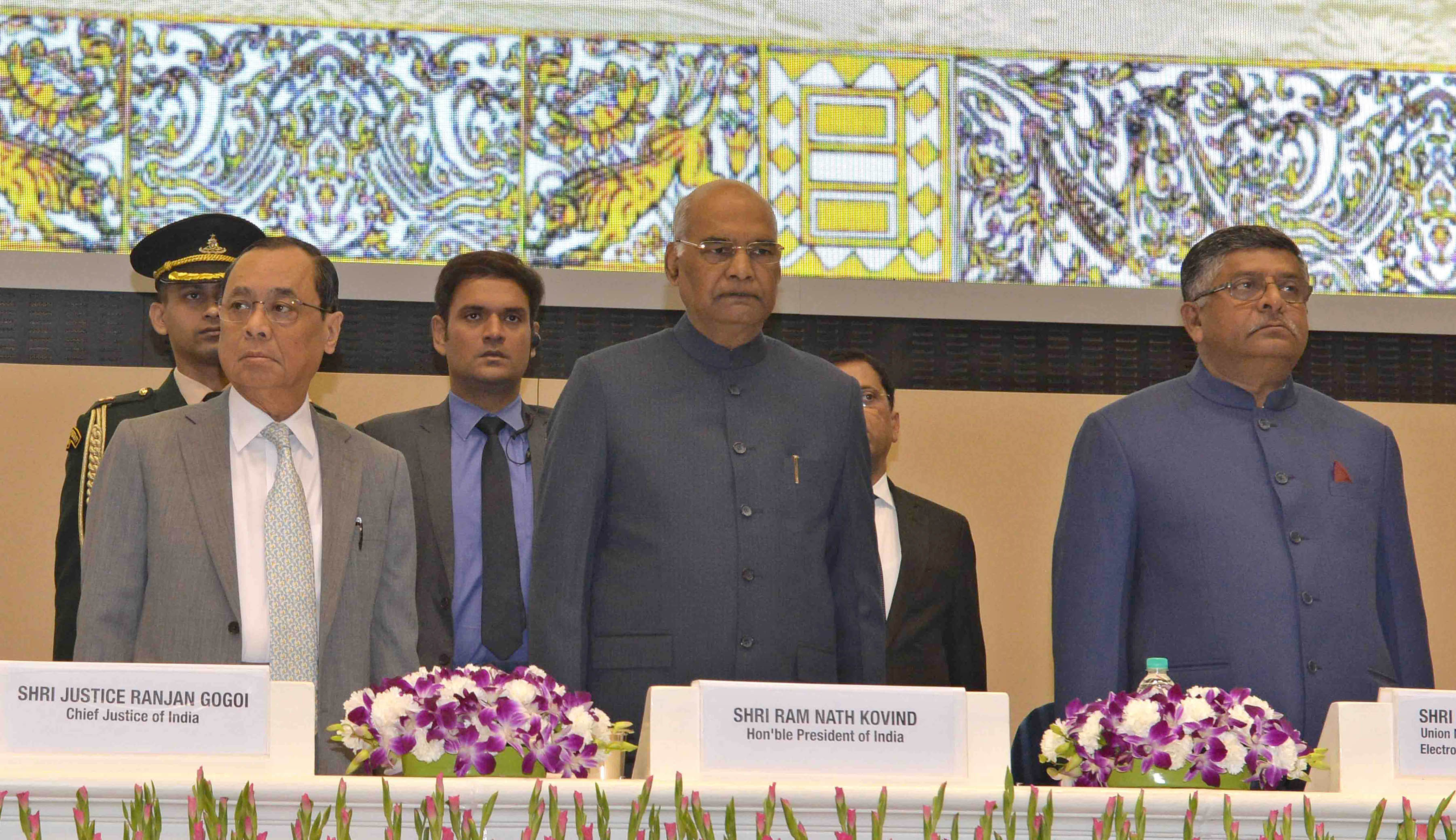
NEW DELHI, Nov 26:
“Horrific images” of the November 26, 2008 Mumbai terror attacks still remain in India’s collective memory and “we are honour bound” to get justice for those who suffered, President Ram Nath Kovind said on Monday.
Speaking at the inaugural function of ‘Constitution Day Celebrations’ held here, Kovind shared the concern of other dignitaries who spoke about the challenges posed by terror attacks like the Mumbai 26/11.
“I refer to the terror attacks in Mumbai on this day, exactly 10 years later. Those horrific images still remain in India’s collective memory. As a nation and the people, we are honour bound to get justice for the individuals and families that suffered,” Kovind said.
Constitution Day, also known as Samvidhan Divas, is celebrated on November 26. The Constituent Assembly adopted the Constitution of India on November 26, 1949. It came into effect on January 26, 1950.
Kovind also expressed concern over disruptions in Parliamentary proceedings as also frequent adjournment of cases in courts to the disadvantage of poor litigants.
He said justice in political arena is not just free and fair election and exercise of universal adult franchisee but it also calls for improving the transparency in “campaign finance” which the government is trying to do.
Chief Justice of India Ranjan Gogoi said in his address that it is in “our best interest” to heed the advice of the Constitution while asserting that not doing so would result in “sharp descent into chaos”.
The Constitution is the voice of the marginalised as well as the prudence of the majority and continues to be a guide in moments of crisis and uncertainty, he said.
The second senior most judge of the Supreme Court, Justice Madan B Lokur, Union Law Minister Ravi Shankar Prasad and Supreme Court Bar Association (SCBA) president Vikas Singh also referred to the 10th anniversary of the dastardly attack in which a large number of people had lost their lives.
The Law Minister said terrorists and some others speak about the human rights of terrorists but what about the human rights of the victims of such attacks.
“We need to understand that terrorists are equipped with most deadly weapons. They also claim human rights and fair trial which we must give but what about human rights of the victims of senseless killings, how to balance the two, we need to discuss and debate this,” he said.
“Terrorists claim human rights since our Constitution provides it but what about the human rights of victims of terror attacks? It is something which we need to discuss and ponder about,” Prasad said.
Justice Lokur said the country had faced a huge challenge posed by terrorists on November 26, 2008 when “unusually large number of men, women and children in the financial capital of the country became victims of a senseless terror attack in which more than 250 people lost their lives”.
“Even today, such challenges are thrust upon us by some forces and we must continue to be vigilant to face then unitedly. The integrity of our constitution must be of foremost concern for us and we must remember that together we can meet any challenge,” he said.
SCBA president Vikas Singh said there was need to have a law to “outsmart the terrorists” by ensuring that by legislation, the media is restrained from publishing the names of organisation and perpetrators of terror attacks because the whole purpose such an attack is to gain publicity. (PTI)
Kovind also said the Constitution formalised the segregation of powers between the judiciary, the executive and the legislature and has given all three pillars the legitimate rules and responsibilities to uphold the Constitution for realising its hopes and expectations.
“The duty of safeguarding and strengthening the Constitution is a shared enterprise among all three institutions, in partnership with the people of India,” he said.
The President expressed his displeasure over the frequent disruption of proceedings in Parliament as also the miseries of poor litigants who have to suffer due to the adjournment of cases in courts despite the judiciary trying its best to find a solution to it.
“Disruptions in parliamentary proceedings are an unfortunate occurrence. Some have suggested that these too be seen as encroachment on the citizen’s understanding of justice,” he said.
“Similarly, when the judiciary tries to find solutions to frequent adjournments, simply to delay cases and inconvenience the less-well-off litigant, it enhances the quality of justice,” the President said.
Adoption of the Constitution was a “milestone” in India’s democratic journey, he said, adding that perhaps the “most moving word” in the Constitution is justice.
Kovind said that the Constitution is the modern scripture of independent India.
“To use a Latin expression, it is our ‘suprema lex’ (a Latin legal maxim that means welfare of the people shall be the supreme law). However, it is more than just a collection of articles and clauses. For us Indians it is an inspirational and living document, an ideal of the society we are and the even better society we are striving to be,” he said.
The President said people were the “ultimate custodians” of the Constitution.
“The Constitution empowers the citizen, but the citizen too empowers the Constitution – by following it, by adhering to it, by protecting it, and by persevering to make it more meaningful with words and deeds,” he said. (PTI)

